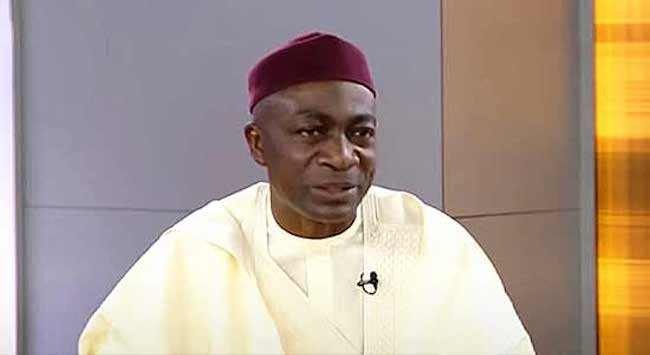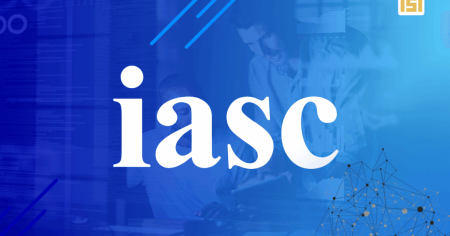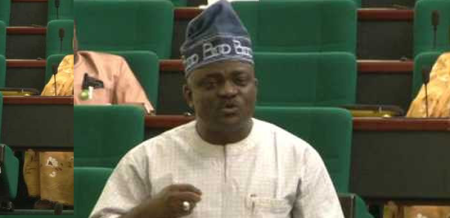The increasing societal pressure on Nigerian lawmakers to act as personal benefactors for their constituents has sparked a debate about the role and responsibilities of elected officials. Senator Yemi Adaramodu, the spokesperson for the Senate, highlighted this burgeoning issue, lamenting that constituents frequently approach lawmakers for financial assistance with personal matters ranging from naming ceremonies to building homes. This expectation, he argues, transcends the constitutional duties of legislators and places an undue burden on them. While acknowledging the need for fiscal responsibility, Adaramodu cautions against reducing the National Assembly to a part-time body, emphasizing the critical role lawmakers play beyond legislative chambers.
Adaramodu’s remarks shed light on a complex dynamic in Nigeria’s political landscape, where lawmakers are often seen as the primary source of support for their constituents’ everyday needs. This expectation, while deeply ingrained in the political culture, raises questions about the sustainability of such a system and the potential for blurring the lines between legislative duties and social welfare provision. The senator’s observation underscores the need for a broader conversation about the responsibilities of elected officials and the expectations of citizens, particularly in a developing democracy like Nigeria. This blurring of roles also raises concerns about potential corruption and the prioritization of personal favors over legislative effectiveness.
The debate about the National Assembly’s operating structure further complicates this issue. Proponents of a part-time legislature argue that it would significantly reduce costs, while opponents, including Adaramodu, contend that such a move would undermine the foundation of Nigeria’s democracy. Adaramodu emphasizes the multifaceted role of lawmakers, highlighting their involvement in oversight functions and advocacy for their constituents. He portrays lawmakers as the most accessible arm of government, the vital link between the people and the state, a role that extends far beyond the confines of legislative chambers. This perspective suggests that a part-time legislature would severely limit lawmakers’ capacity to fulfill these crucial responsibilities, potentially exacerbating the disconnect between the government and the citizenry.
A key element of Adaramodu’s argument revolves around the accessibility of lawmakers compared to other branches of government. He notes that constituents rarely have direct contact with officials in the executive or judiciary, making lawmakers the primary point of contact for citizens seeking government assistance. This accessibility, while arguably a positive aspect of representative democracy, contributes to the expectation that lawmakers should address personal needs, further blurring the lines between their legislative duties and social welfare provision. It also raises questions about the effectiveness and responsiveness of other government branches in addressing citizen concerns. This disparity in accessibility places an immense burden on lawmakers, forcing them to navigate the complex terrain of legislative responsibilities alongside the demands of their constituents’ personal needs.
The debate highlights a fundamental tension in representative democracy: balancing the need for efficient governance with the demands of constituent service. While fiscal responsibility is crucial, especially in a resource-constrained environment like Nigeria, reducing the legislature’s capacity could further marginalize citizens and weaken democratic institutions. The public’s lack of understanding regarding the complexity of parliamentary roles, as pointed out by Adaramodu, contributes to the perception that lawmakers are primarily focused on personal enrichment rather than fulfilling their legislative duties. This perception underscores the need for greater transparency and public education about the workings of the National Assembly and the roles of its members.
Ultimately, the discussion surrounding the role of Nigerian lawmakers necessitates a broader societal dialogue about the expectations of constituents, the responsibilities of elected officials, and the optimal structure of the National Assembly. Balancing the demands for personal assistance with the need for effective legislative function remains a significant challenge. Addressing this challenge requires a multifaceted approach that includes educating the public about the roles and responsibilities of lawmakers, strengthening other government institutions to improve their accessibility and responsiveness, and fostering a political culture that prioritizes effective governance and accountability over personal patronage. This will require a concerted effort from both the government and civil society to promote a more nuanced understanding of the complexities of democratic governance in Nigeria.














